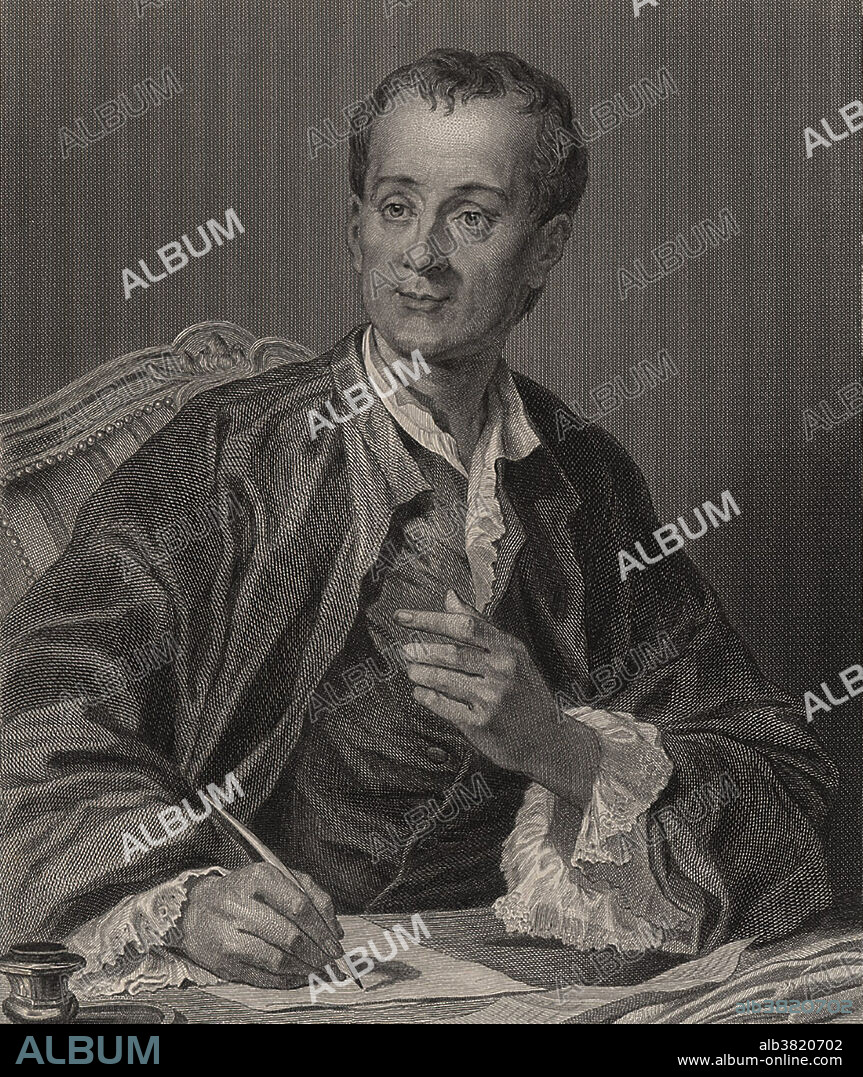alb3820702
Denis Diderot, French Encyclopedist

|
Add to another lightbox |
|
Add to another lightbox |



Buy this image.
Select the use:

Title:
Denis Diderot, French Encyclopedist
Caption:
Denis Diderot (1713-1784), French philosopher, art critic, and writer. In 1732 he earned a master of arts degree in philosophy, but because he refused to enter one of the learned professions, he was disowned by his father. In 1751 he became co-founder, chief editor, and contributor to the Encyclopedie along with Jean le Rond d'Alembert. The project was mired in controversy from the beginning. When his immense work was drawing to an end he discovered that the bookseller, fearing the government's displeasure, had struck out from the proof sheets, after they had left Diderot's hands, all passages that he considered too dangerous. The monument to which he had labored was irreparably mutilated and defaced. As a philosopher he speculated on free will and held a completely materialistic view of the universe. He believed all human behaviour was determined by heredity. He rejected the Idea of Progress. In his opinion, the aim of progressing through technology
Credit:
Album / Science Source / Smithsonian Institute Library
Releases:
Image size:
3300 x 3914 px | 37.0 MB
Print size:
27.9 x 33.1 cm | 11.0 x 13.0 in (300 dpi)
Keywords:
18TH CENTURY • 18TH CENTURY, THE • 18TH CENTURY. • 18TH • AGE • ÂGÉS • ART • ARTWORK • AUTHOR • CELEBRITIES • CELEBRITY • CENTURY • CRITIC • DENIS • DIDEROT • DRAWING • ENCYCLOPEDIST • ENLIGHTENMENT • EUROPEA • EUROPEAN • EUROPEANS • FAMOUS PEOPLE • FAMOUS • FIGURE • FREE • FRENCH • HISTORIC • HISTORICAL • HISTORY • ILLUSTRATION • ILLUSTRATIONS • ILUSTRATION • IMPORTANT • LAST WILL AND TESTAMENT • LAST WILL • MALE • MAN • MEN • NOTABLE • NOVELIST • OF • OLD • PEOPLE • PERSON • PERSONALITIES • PERSONALITY • PHILOSOPHER • PHILOSOPHY • PLAYWRIGHT • PORTAIT • PORTRAIT • POTRAIT • TESTAMENT • WELL-KNOWN • WESTERN • WILL (TESTAMENT) • WILL • XVIII CENTURY
 Pinterest
Pinterest Twitter
Twitter Facebook
Facebook Copy link
Copy link Email
Email
